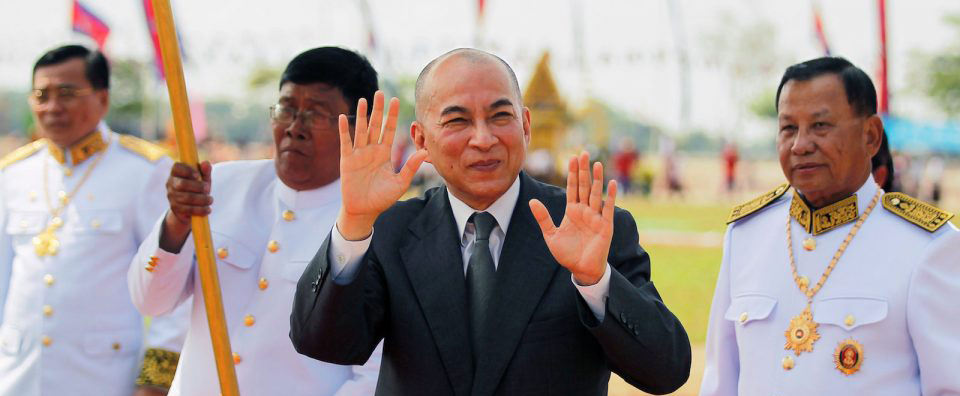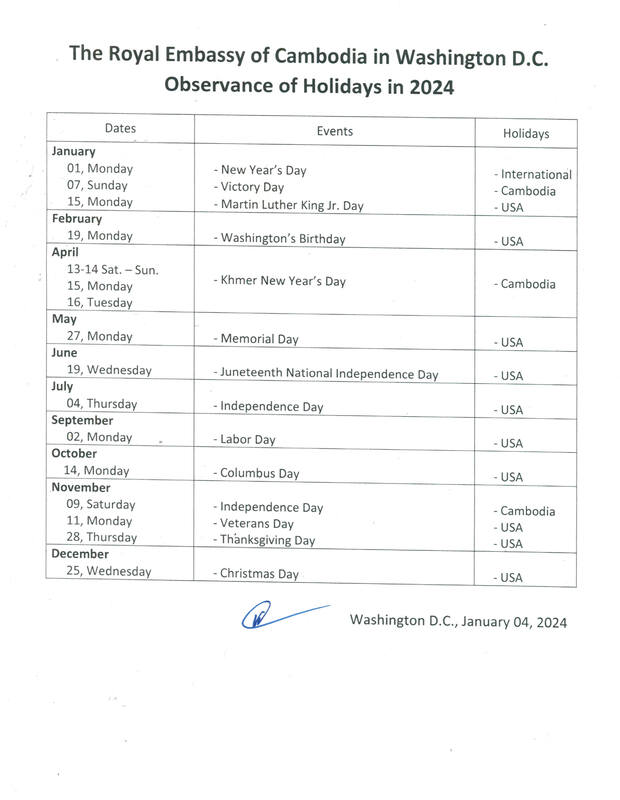The King of Cambodia (Khmer: ព្រះមហាក្សត្រនៃព្រះរាជាណាចក្រកម្ពុជា, French: Roi du Royaume du Cambodge) is the head of state of the Kingdom of Cambodia. The King's power is limited to that of a symbolic figurehead to whom people are to give love and respect. The monarch also represents peace, stability, and prosperity to the Khmer people. Since 1993, the King of Cambodia is an elected monarch, making Cambodia one of the few elective monarchies of the world. The king is elected for life from among the members of the Norodom and Sisowath bloodline who are at least 30 years old by the Royal Council of the Throne which consists of several senior political and religious figures.
Role
Cambodia's constitution, promulgated in 1993 stipulated the king's role as a mainly ceremonial one. It declared that the king “shall reign, but not govern” as well as being the “symbol of national unity and continuity.”
The king performs important functions of state as per required by the constitution. This includes but is not limited to:
The king also fulfills other roles not explicitly mentioned in the constitution in his capacity as head of state like for example, presiding over events of national significance, including religious ceremonies and traditions integral to the Khmer nation, supporting humanitarian and philanthropic causes, and representing Cambodia abroad when undertaking official visits overseas.
The king performs important functions of state as per required by the constitution. This includes but is not limited to:
- Appointing the Prime Minister of Cambodia and the Cabinet of Cambodia.
- Convening over the opening of the two legislative bodies, the National Assembly of Cambodia and the Senate of Cambodia
- Serving as the Supreme Commander of the Royal Cambodian Armed Forces.
- Meeting with the Prime Minister on a monthly basis in which the King is briefed on matters of state.
- Signing the royal code/ decree that gives effect to laws enacted by the legislature and proposals by the cabinet.
- Acting as "supreme arbiter" to enable the functioning of state institutions.
- Receiving credentials from ambassadors.
- Possessing the power of commutation and pardon.
- Presiding over the Supreme Council of the Magistracy.
- Appointing a fixed number of members to serve on state institutions such as the Senate and the Constitutional Council
- Awarding of national honours.
The king also fulfills other roles not explicitly mentioned in the constitution in his capacity as head of state like for example, presiding over events of national significance, including religious ceremonies and traditions integral to the Khmer nation, supporting humanitarian and philanthropic causes, and representing Cambodia abroad when undertaking official visits overseas.
CONTACT INFORMATIONEMBASSY HOURS
CONTACT NUMBER
EMAIL ADDRESS
|


